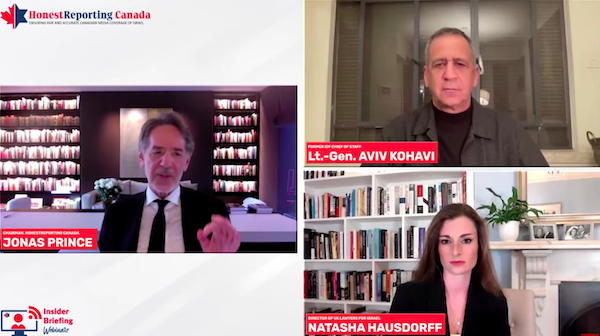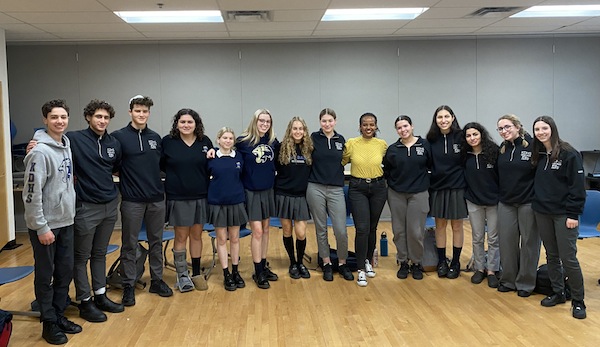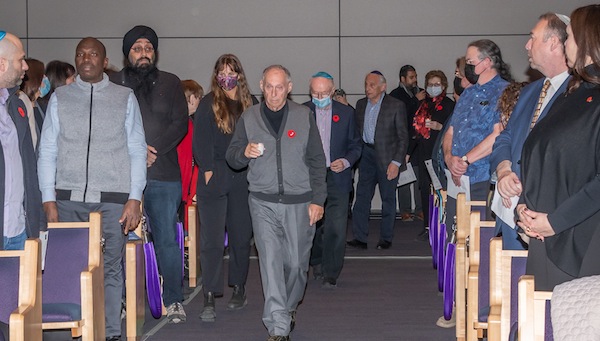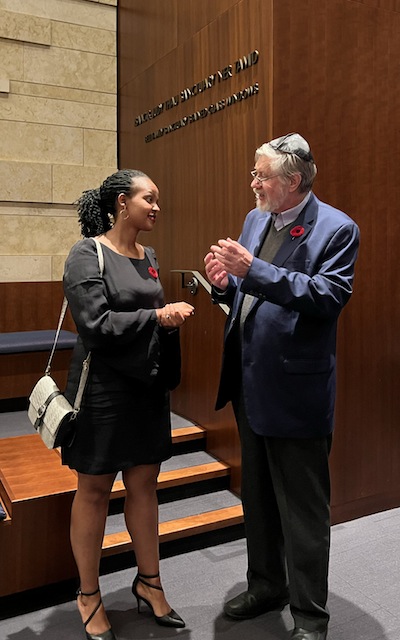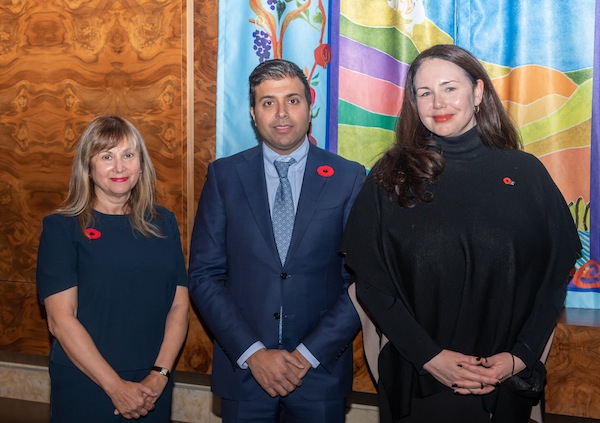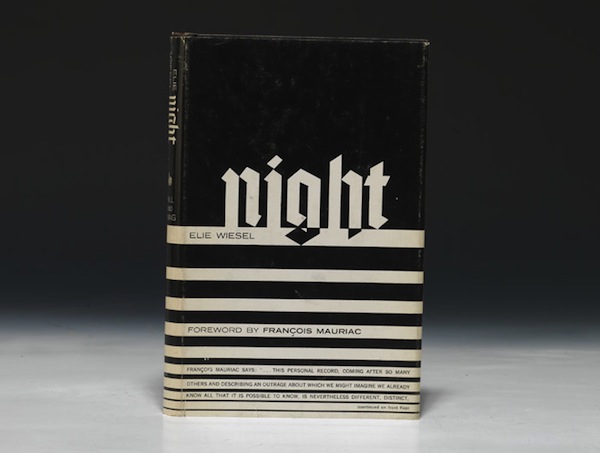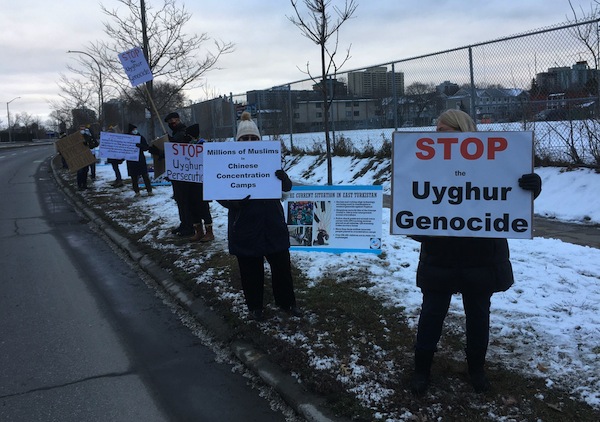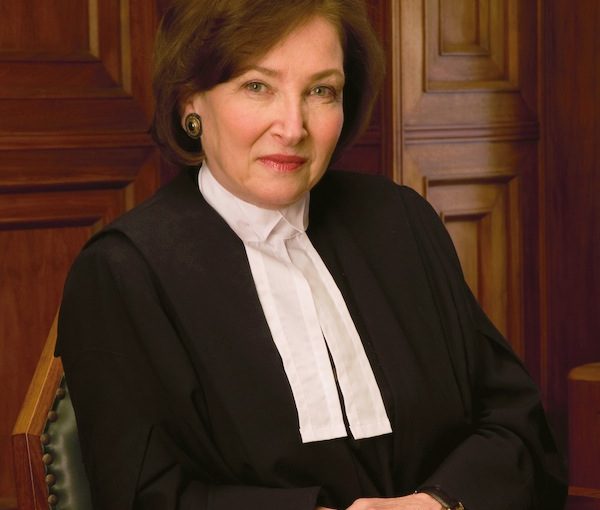Screenshot of the Jan. 30 HonestReporting Canada discussion on the International Court of Justice ruling on whether Israel is perpetrating genocide. Jonas Prince, chair of HonestReporting Canada, emceed and speakers were Lt.-Gen. Aviv Kohavi, former chief of general staff of the Israel Defence Forces, and Natasha Hausdorff, a British specialist in international law and a former clerk for the president of the Supreme Court of Israel.
The International Court of Justice ruling on whether Israel is perpetrating genocide means little, according to a legal academic speaking to Canadian audiences last week.
“This was a complete nonevent,” said Natasha Hausdorff, a British specialist in international law and a former clerk for the president of the Supreme Court of Israel. “There was nothing substantive found and nothing substantive required or ordered as part of the provisional measures because there is no evidence that Israel is engaged in genocide; quite the contrary.”
Hausdorff was speaking in a webinar Jan. 30 alongside Lt.-Gen. Aviv Kohavi, former chief of general staff of the Israel Defence Forces. The event was presented by HonestReporting Canada, which describes itself as “an independent grassroots organization promoting fairness and accuracy in Canadian media coverage of Israel and the Middle East.”
Jonas Prince, cofounder and chairman of HonestReporting Canada, emceed the event.
“The words war crimes, genocide, proportionality, siege, humanitarian crisis have been weaponized by the media, as well as Israel’s enemies,” said Prince. “The Iron Dome defence against these verbal missiles is knowledge.”
Where Hausdorff brought legal acumen to the discussion, Kohavi offered the perspective of a top military official who has been on the ground, making life-and-death decisions in some of the most ethically dicey situations.
World reaction to the international court’s judgment, which was released Jan. 26, has been mixed, if not confused. The court notably did not call on Israel to end the war and neither did it rule, ultimately, on whether genocide is happening or seems imminent.
The court handed down “provisional measures” that it said Israel was obligated to undertake, including that Israel should do everything possible to avoid killing Palestinians or causing serious bodily or mental harm, creating intolerable conditions, or deliberately preventing Palestinian births. The court also called on Israel to “prevent and punish” public incitement to genocide, citing comments from Israeli officials as examples.
Hausdorff dismissed the last item, contending it was clear that the statements made by Israeli government officials that the court cited were referring to Hamas terrorists and not to Palestinian civilians. With respect to the other aspects of the ruling, she and Kohavi both essentially argued that Israel is already doing what the court demanded.
The wide-ranging discussion focused on Israel’s rights under international law and attempted to correct what the speakers said were misunderstandings of legal terminology. The expression “proportionality” is an example, Hausdorff said, with many people believing that the greater Palestinian death toll is proof of “disproportionality.”
“That is grotesque,” she said, “not least because the corollary of that analysis is often that not enough Jews have died to justify Israel’s response.” It also encourages Hamas’s tactics of using civilians as human shields, she said, “driving up the civilian casualty count as a means of putting pressure on Israel to desist with its lawful military activities.”
Proportionality, she explained, involves military commanders making assessments on whether the military advantage sought by a strike is proportionate to the anticipated collateral damage.
Kohavi emphasized that disparities in death tolls are due to a significant extent to Israel’s defensive technologies – Iron Dome – as well as the secure rooms and bomb shelters constructed for decades in Israeli buildings.
“We have taken steps and measures in order to protect our citizens and that’s why the numbers on our side are relatively low,” he said. “Now, I do not expect Hamas to build their [own] Iron Dome, but they could build shelters. Instead, they have been building their tunnels for their perpetrators, not for civilians.”
For 15 years, Kohavi said, Hamas has embedded its military operations seamlessly throughout the Gaza Strip’s dense urban populations. Israel’s precision targeting technologies allow the military to destroy terrorist targets while harming as few civilians as possible, he said.
Despite a global outcry over the estimated 27,000-plus Palestinians killed, Hausdorff and Kohavi took exception to these figures on several fronts. It is in the interest of Hamas, which compiles the statistics, to maximize them, said Hausdorff. She cited the notorious example of an alleged Israeli bombing of a Palestinian hospital killing 500. Later evidence said it was a Palestinian missile that caused the explosion and that the death toll estimates were exaggerated, possibly by a magnitude of 10. The cumulative casualty tally kept by the Gaza Ministry of Health was never altered downward after initial reports in that case were debunked, Hausdorff said.
The figures also make no differentiation between combatants and civilians, both panelists said. While lamenting all civilian deaths, they said that even in the confined theatre of the highly urban Gaza Strip, civilian deaths tolls are probably significantly lower than in parallel military engagements.
Other data suggest 1.8 civilian deaths to every killed combatant in the current conflict, Hausdorff said, compared with the macabre accounting of the United Nations, which calculates that, in the context of urban warfare, civilian casualties average nine to every combatant death. American figures in wars Iraq and Afghanistan saw civilian death tolls of 3-to-1 and 5-to-1 respectively, she said.
In the circumstance, Hausdorff said, it is “utterly unparalleled” that Israel has kept civilian deaths to the numbers it has “despite every effort that Hamas has made to increase civilian casualties and inflate that toll.”
The court case, which was brought by the government of South Africa, is “extremely problematic,” Hausdorff said, “not just for Israel but for all law-abiding states, for those who uphold and prize the rule of law, that the International Court of Justice would be entertaining this.”
She accused the International Court of Justice of “essentially doing the bidding of a terrorist organization.”
South Africa likes to paint itself as a champion of Palestinian rights, Hausdorff said.
“South Africa is a champion of Hamas, an internationally proscribed terrorist organization,” she said. “No individual who cared about Palestinian rights would be seeking to prop up Hamas given that the Palestinian people have borne the brunt of their brutality and their corruption and their slaughter and torture over the blast 16, 17 years.”
Readers can watch the HonestReporting Canada event at youtube.com/watch?v=FwksgmYqXBs.

